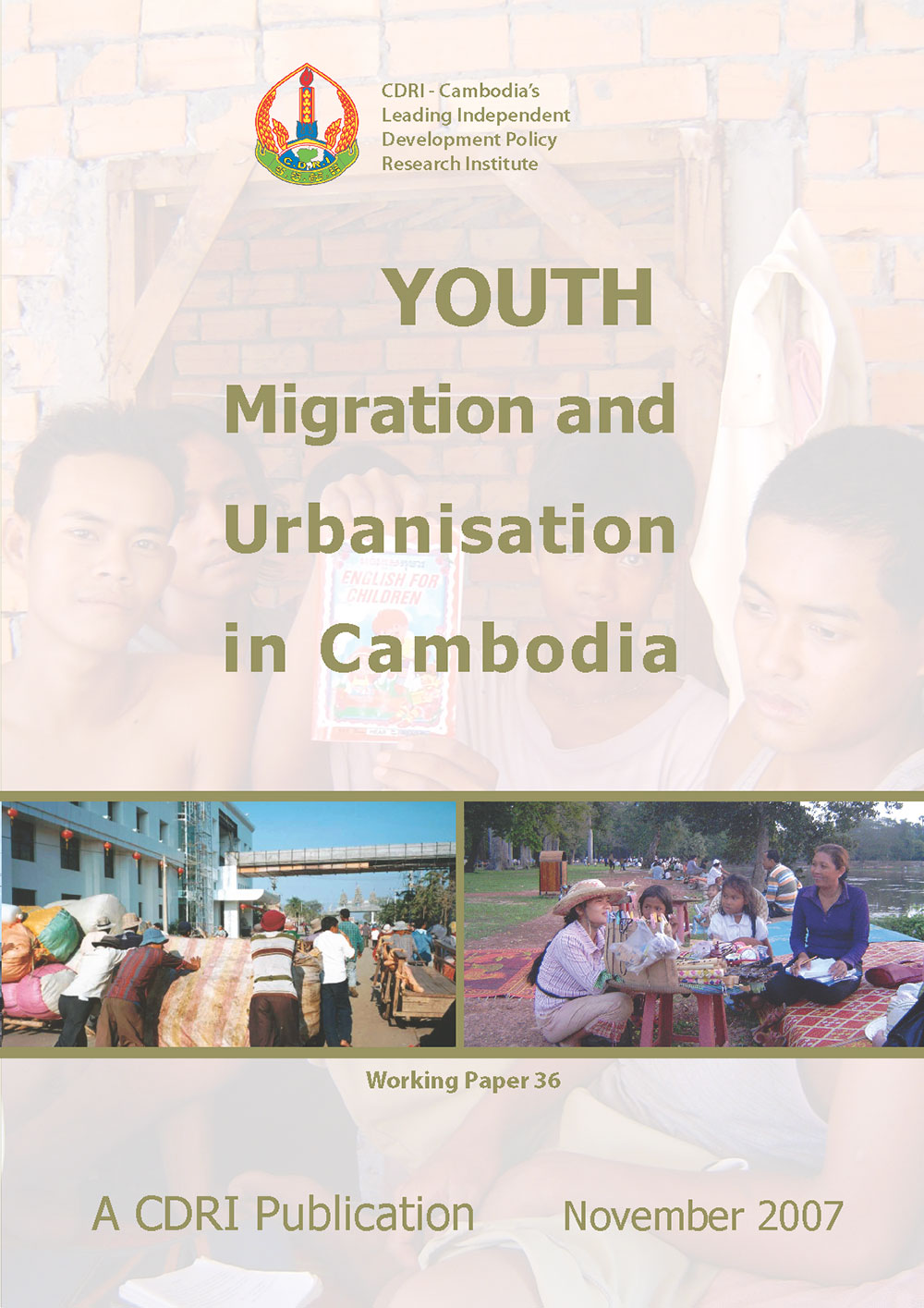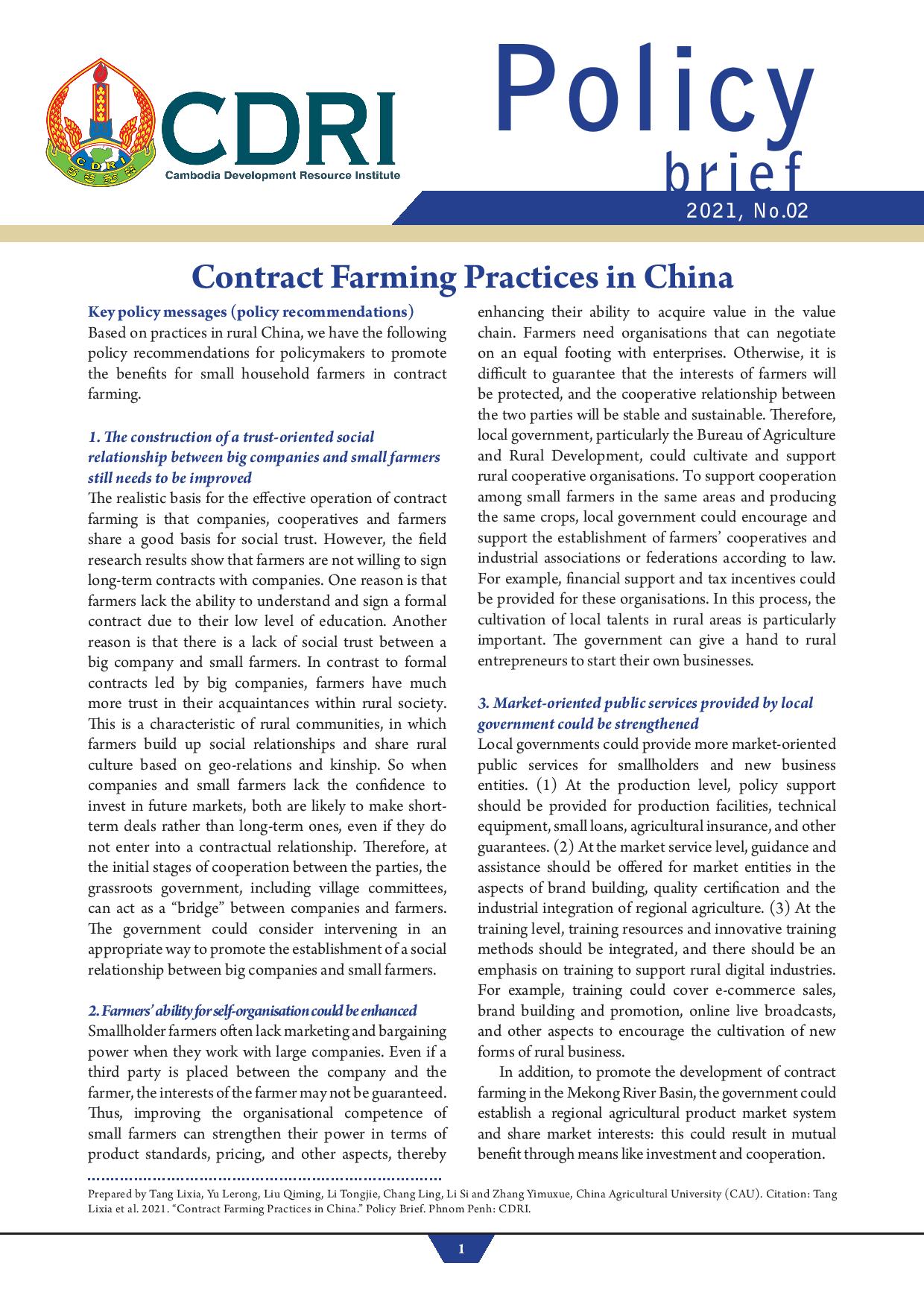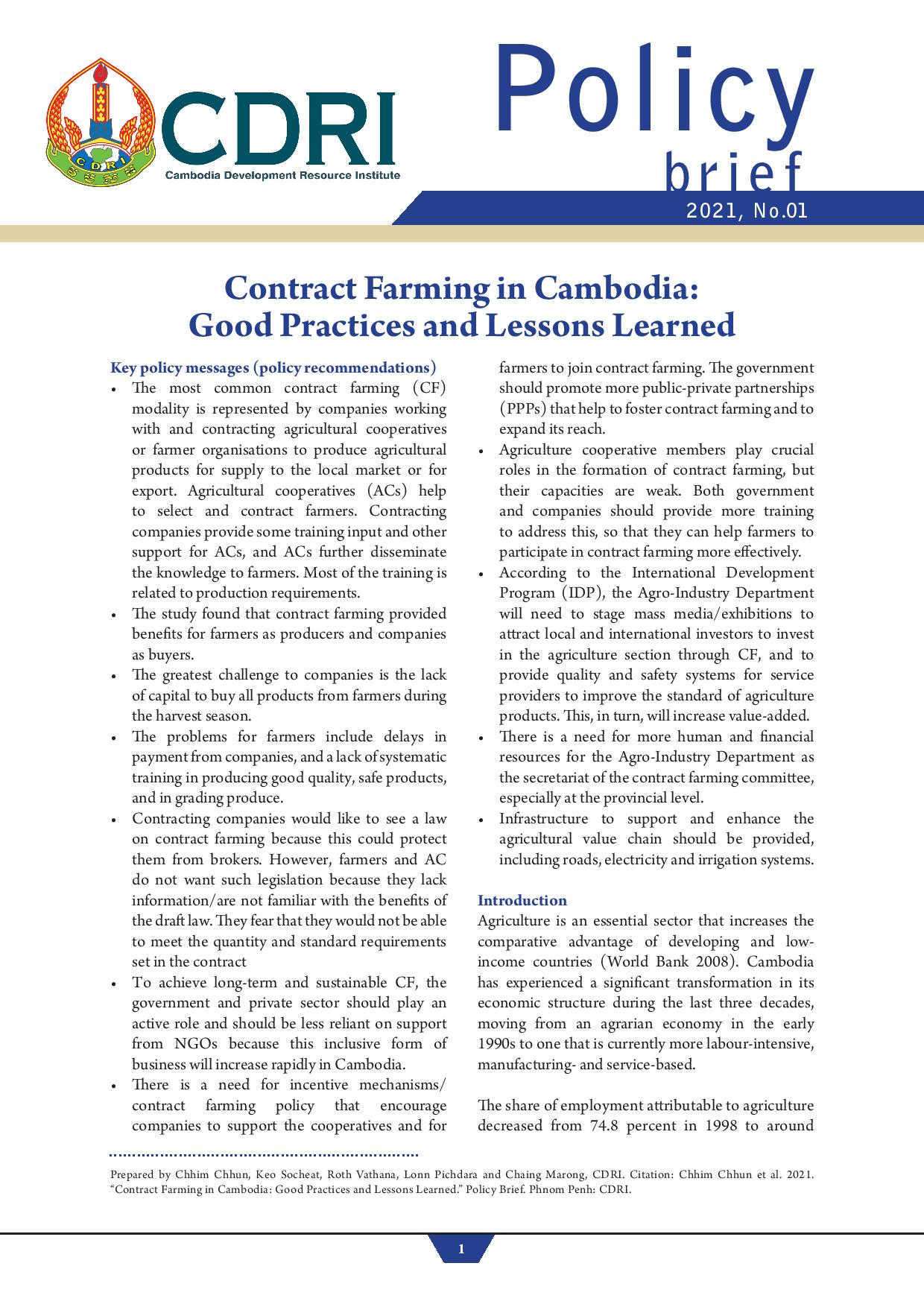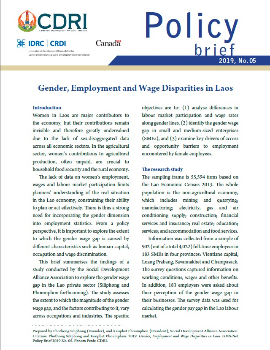
Abstract/Summary
Since the late 1990s, a growing number of young adults in
rural Cambodia have migrated to urban areas to take up jobs created as the
result of the country’s opening to a free market economy and its subsequent
high economic growth. Moving from one place to another is always risky,
especially for young workers most of whom have never left their home village
and are equipped with only very limited basic education and few or no skills.
Undoubtedly, there are some necessary reasons behind this huge movement of young
people from rural to urban areas. Their migration process, networks, living and
working conditions, challenges and difficulties are not yet well understood,
nor are the impact of remittances and migration on sending households and
communities. Aiming to fill in these knowledge gaps, this study has five
specific objectives: (a) to understand the socio-economic background of young
migrants’ households; (b) to identify the factors and circumstances that
promote migration and to understand how youth decide to migrate from rural
areas; (c) to examine the role of social networks in facilitating migration;
(d) to discover the types of employment in urban areas for young migrants and
their integration into the urban setting; (e) to understand relations with the
sending household and the impact on poverty in the sending household and
community.
The study found that most young migrant workers are from the medium and poor categories. The very poor lack the social and financial capital to migrate, while the rich decide to stay put to avoid migration-related risks. The flows of young migrant workers from rural to urban areas are mainly through informal channels and networks; a formal network is largely absent. The study also found that young migrant workers face many difficulties in both life and work; however, they do not complain much and tend to be able to overcome those difficulties. Even after living in urban areas for some years, most of them fail to integrate into the urban setting but group with other migrant workers from the same village or other rural areas of Cambodia. The study also found very strong links between young migrant workers and sending households and communities. They regularly and frequently remit money home and make home visits during important holidays. The remittances from young migrant workers are primarily used for basic needs. This helps keep families out of poverty but fails in most cases to move them higher in the well-being ranking.
DOI: https://doi.org/10.64202/wp.36.200711



